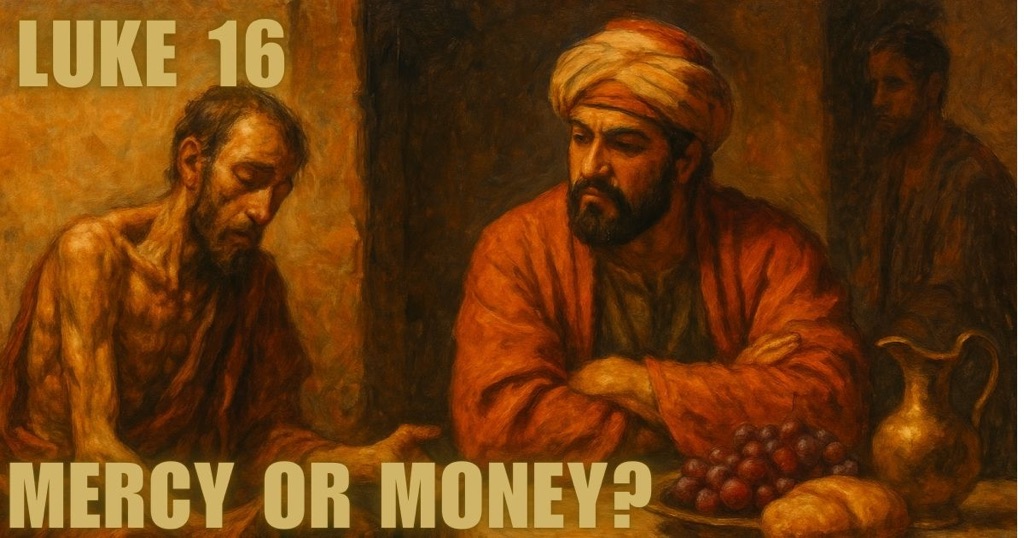Luke 16 is one of the most perplexing and layered chapters in the Bible, especially for modern readers trying to balance faith with real-world responsibilities. At the heart of this chapter is a parable that has sparked countless interpretations: the Parable of the Dishonest Manager. But what if the point isn’t about dishonesty at all? What if Jesus is urging us to be strategic, wise, and eternally focused with the resources we’ve been given?
This blog unpacks Luke 16 through the lens of a thoughtful layperson who isn’t afraid to wrestle with tough questions. The result is a deeply personal and practical guide to understanding the priorities of God’s kingdom.
Shrewdness vs. Dishonesty: What’s the Manager Really About?
The story begins with a manager who is accused of wasting his master’s possessions. Facing termination, he quickly negotiates settlements with the master’s debtors. At first glance, his actions seem deceitful. Yet, the master commends him—not for fraud, but for his shrewdness.
This term—often misunderstood as negative—here signifies foresight, strategy, and effective resource management. The key lesson isn’t about being sneaky but being smart. The “sons of light,” Jesus says, aren’t as clever in using their resources to advance God’s kingdom as the worldly are in securing their own interests.
Think of it like this: The world builds empires through planning and networking. Shouldn’t believers be just as intentional about building the kingdom of God?
Earthly Wealth, Eternal Impact
Jesus moves the conversation forward with a radical idea: use “unrighteous wealth” to make eternal investments. He’s not saying to gain money dishonestly—but rather, the money we earn through worldly means (like jobs or investments) should be used to bless others and build eternal relationships.
This flips our usual view of wealth on its head. Instead of hoarding or idolizing it, money becomes a tool to create lasting impact. Whether it’s supporting ministry, helping a friend in need, or simply being generous, every financial decision is a spiritual one.
Faithful with Little, Faithful with Much
Jesus then reminds us that how we handle small things is a reflection of how we’ll handle bigger responsibilities. This is particularly convicting in a culture that often chases “more” before mastering “enough.”
The point is clear: Are we trustworthy stewards of what God has already given us—our time, talents, and yes, our money? If we misuse minor blessings, how can we expect to be entrusted with greater kingdom work?
You Can’t Serve Two Masters
Perhaps the most direct and challenging part of this chapter is the declaration that no one can serve both God and money. The issue isn’t money itself, but trust. Where do we find our security? What drives our decisions—faith or fear?
In practice, it means evaluating where we place our confidence. When the budget is tight or the future uncertain, do we trust our savings account or our Savior?
Lazarus and the Rich Man: A Parable About Eternal Reversals
The chapter concludes with the story of Lazarus and the unnamed rich man. The rich man lives in luxury while Lazarus suffers outside his gate. After death, their roles are reversed. Lazarus is comforted in Abraham’s bosom; the rich man is tormented in Hades.
The story isn’t just about wealth disparity—it’s about spiritual blindness. The rich man ignored suffering at his doorstep and later asks for a sign to warn his brothers. But Abraham tells him, “They have Moses and the prophets.” In other words, God has already given enough revelation for belief.
It’s a stark reminder: faith isn’t about waiting for dramatic signs. It’s about responding to what God has already revealed.
Living with Purpose: What This Means for Us Today
This chapter presses us to ask difficult questions: Are we shrewd with our resources? Do we prioritize eternal goals over earthly comforts? Are we faithful stewards or distracted consumers?
In a world full of distractions and material obsession, Luke 16 offers a powerful call to realign our lives with kingdom values. It’s not about being rich or poor—it’s about what we do with what we have.
Conclusion: Stewardship, Strategy, and Seeking the Kingdom
Luke 16 isn’t an easy read. But it’s a necessary one. It challenges us to think strategically, to use worldly wealth for godly purposes, and to always remember that our true treasures are eternal. Whether it’s our money, our time, or our relationships, everything we’ve been given is a seed for God’s kingdom.
Let’s be intentional. Let’s be faithful. And above all, let’s be shrewd—not for our own gain, but for God’s glory.

